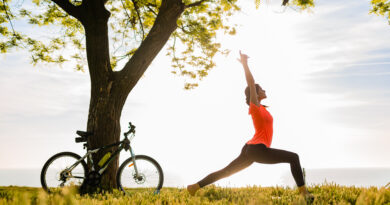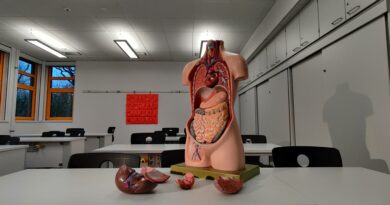“How can I reduce stress and anxiety naturally?”
Stress and anxiety have become increasingly prevalent in our fast-paced and demanding modern lives. If you’re looking for ways to alleviate these burdens naturally, you’re in the right place. This article will provide you with valuable insights into understanding stress and anxiety, their effects, and practical techniques to reduce them naturally. So, let’s delve into the topic and discover effective ways to bring more peace and tranquility into your life.
1. Introduction
In today’s high-pressure society, stress and anxiety have become all too common. Whether it’s due to work-related pressures, personal challenges, or external factors, finding healthy ways to manage and reduce stress is crucial for overall well-being. This article aims to provide you with a comprehensive guide on natural methods to reduce stress and anxiety.
2. Understanding Stress and Anxiety
2.1 What is stress?
Stress is the body’s response to demanding or challenging situations. It can be triggered by various factors such as work, relationships, or financial issues. When faced with stress, the body releases hormones like cortisol, which can have both short-term and long-term effects on physical and mental health.
2.2 What is anxiety?
Anxiety, on the other hand, is a feeling of unease, worry, or fear. It is often characterized by persistent thoughts, tension, and physical symptoms such as increased heart rate. Anxiety can be a normal response to certain situations, but when it becomes excessive and interferes with daily life, it may require attention and management.
3. Effects of Stress and Anxiety
Both stress and anxiety can have detrimental effects on various aspects of our well-being. Understanding these effects is crucial in recognizing the importance of managing and reducing stress and anxiety naturally.
3.1 Physical effects
Prolonged stress and anxiety can manifest in physical symptoms such as headaches, muscle tension, fatigue, and digestive issues. Additionally, they can weaken the immune system, making individuals more susceptible to illnesses.
3.2 Emotional effects
Stress and anxiety can also impact emotional well-being, leading to feelings of irritability, mood swings, difficulty concentrating, and a reduced sense of enjoyment in activities.
4. Natural Ways to Reduce Stress and Anxiety
Now that we understand the negative effects of stress and anxiety, let’s explore effective natural methods to reduce them and improve overall well-being.
4.1 Exercise and Physical Activity
Engaging in regular exercise and physical activity has been proven to reduce stress and anxiety. Exercise releases endorphins, also known as “feel-good” hormones, which help boost mood and alleviate stress. Whether it’s going for a brisk walk, practicing yoga, or participating in team sports, finding an activity you enjoy can make a significant difference in managing stress and anxiety.
4.2 Mindfulness and Meditation
Practicing mindfulness and meditation allows you to bring your focus to the present moment and cultivate a sense of calmness. Mindfulness involves paying attention to your thoughts, emotions, and bodily sensations without judgment. Meditation, on the other hand, involves finding a quiet space, closing your eyes, and focusing on your breath or a specific object. Both techniques help reduce stress and anxiety by promoting relaxation and mental clarity.
4.3 Breathing Techniques
Simple breathing techniques can provide immediate relief from stress and anxiety. One effective technique is deep breathing, where you inhale deeply through your nose, hold your breath for a few seconds, and exhale slowly through your mouth. This deep breathing helps activate the body’s relaxation response, calming the nervous system and reducing stress levels.
4.4 Healthy Diet and Nutrition
What you eat can greatly impact your stress and anxiety levels. Incorporating a balanced and nutritious diet rich in fruits, vegetables, whole grains, and lean proteins can support overall well-being and help manage stress. Avoid excessive consumption of caffeine, sugary foods, and processed snacks, as they can contribute to increased anxiety and restlessness.
4.5 Adequate Sleep
Getting sufficient sleep is vital for managing stress and anxiety. Lack of sleep can make you more vulnerable to stressors and affect your ability to cope with challenges. Establish a regular sleep routine, create a relaxing bedtime environment, and practice good sleep hygiene habits to ensure quality sleep and wake up refreshed.
4.6 Social Support and Connection
Seeking support from loved ones and maintaining social connections is crucial for reducing stress and anxiety. Share your feelings and concerns with trusted friends or family members, participate in social activities, and consider joining support groups or engaging in community events. Connecting with others provides a sense of belonging and emotional support, helping alleviate stress and anxiety.
4.7 Time Management and Prioritization
Feeling overwhelmed by a never-ending to-do list can significantly contribute to stress and anxiety. Implementing effective time management techniques, such as setting priorities, breaking tasks into manageable chunks, and delegating when possible, can help reduce stress levels. By organizing your time and focusing on important tasks, you can regain control and reduce anxiety.
4.8 Hobbies and Relaxation Techniques
Engaging in activities that bring you joy and relaxation is essential for reducing stress and anxiety. Find hobbies or leisure activities that you enjoy, such as painting, gardening, reading, or listening to music. These activities provide a healthy outlet for stress and serve as a form of self-care.
4.9 Herbal Remedies and Supplements
Some herbal remedies and supplements have been found to help reduce stress and anxiety. Examples include lavender, chamomile, valerian root, and supplements like omega-3 fatty acids and magnesium. However, it’s important to consult with a healthcare professional before incorporating any new herbs or supplements into your routine to ensure safety and effectiveness.




